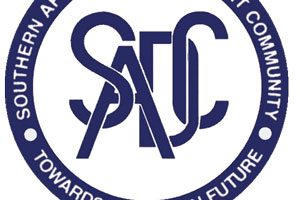
THE recent decision by Southern African Development Community (Sadc) member states to water down the mandate of the regional bloc’s tribunal protocol is a worrisome development.
NewsDay Editorial
This is considering that the changes in the court’s original mandate were horned following protests by just one of the bloc’s members and new regional chair — Zimbabwe’s President Robert Mugabe.
It boggles the mind to imagine what prompted the Sadc leaders to decide to take away the tribunal’s right to hear cases filed by individuals who would have been aggrieved by their respective governments.
The issue of human rights was at the core of the former tribunal’s mandate. So, one wonders whether the region has been hoodwinked by Zimbabwe to forgo human rights issues all in the name of camaraderie.
One needs not belabor the fact that Zimbabwe is still reeling under the effects of European Union sanctions over its poor human rights record. By choosing to sweep aside governance and human rights issues, the move could spell doom for Sadc.
Under the new protocol, the new Sadc Tribunal will now be expected to deal only with inter-state disputes and no longer with cases brought by individuals.
Before its disbanding by the Sadc summit in Mozambique in 2012, individuals could approach the tribunal if they felt that the justice system in their home countries had failed to properly address their grievances.
- Chamisa under fire over US$120K donation
- Mavhunga puts DeMbare into Chibuku quarterfinals
- Pension funds bet on Cabora Bassa oilfields
- Councils defy govt fire tender directive
Keep Reading
Disgruntled former Zimbabwean white commercial farmers had taken advantage of that window of opportunity presented by the tribunal to contest the seizure of their farmland. However, the regional court challenge and the ruling which went in their favour all came to naught when Mugabe bulldozed his way and pushed for its disbandment arguing that its rulings were a threat to Zimbabwe’s national sovereignty.
One cannot be far off the mark to conclude that for the next 12 months, Mugabe as new Sadc chair will railroad the bloc to adopt programmes and actions that please him. A precedent has already been set.
A closer look at the theme for the just-ended Sadc Summit held in Victoria Falls resembled Zanu PF’s economic blueprint, Zimbabwe Agenda for Sustainable Socio-Economic Transformation (ZimAsset). This clearly demonstrates the route Sadc is likely to take.
Some of Mugabe’s own lieutenants have already cast aspersions over ZimAsset’s projections. The matter is further complicated by the fact that Sadc has chosen to be led by a “sneezing economy” whose contagion effect could spread across the region given that other leaders have no spine to openly challenge Mugabe’s “wayward” economic policies.
Out of all Sadc leaders at the Summit, only Botswana President Ian Khama, who will take over as chair in August next year, did not sign, a clear signal that he is not prepared to sacrifice good governance and human rights issues for the sake of maintaining a facade of comradeship between regional leaders. Botswana has previously criticised Zimbabwe’s poor human rights record and has questioned the 15-member organisation’s commitment to good governance.
Therefore, the logic behind the adoption of a tribunal protocol that serves as a preserve of the political elite is unfortunate. It is clear that any regional court that does not have an ear for ordinary people does not deserve the label.











